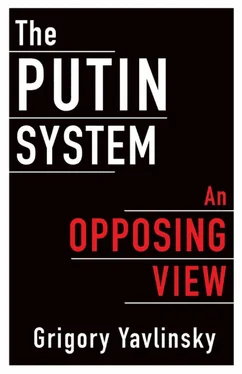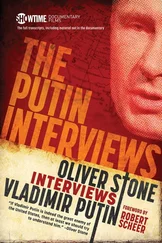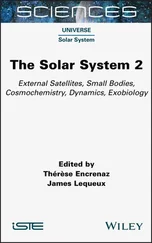In this regard, it was entirely natural that the drive toward isolation from the outside world (a result of the Kremlin’s actions, which violated the rules established for it) rapidly accelerated and was far-reaching in its development. It was particularly helped by the fact that the Kremlin’s actions were accompanied by territorial acquisitions and the associated upswing in patriotic, pro-government feelings—a politically important gain for the ruling circle. The threats issued by the West in this connection even sparked a certain enthusiasm among the elite, rather than scaring them, because this was viewed as a sort of acknowledgement of their grandeur. The Kremlin could afford to act as it saw fit, without worrying about the “international community.” The prospect that Western governments could freeze and seize the foreign assets of Russia’s high-ranking officials, particularly those of the uniformed agencies, was only welcomed—both by Putin, their unquestionable leader, who had already been pursuing a policy of “nationalization of the elite,” and, one might say, by Russia’s population as a whole.
Judging by objective indicators and facts (to the extent that we can), it appears that the upper crust of Russia’s government bureaucracy, including its economic officials, was rather unfazed by the Kremlin’s proclamation of its willingness to drastically minimize Russia’s political and, for the most part, even economic relations with Western countries. In any case, during the period when this turnaround became clearly and unambiguously pronounced, there were no resignations or any visible activities on the part of any government officials that could be interpreted as an attempt to publicly indicate resistance to these policies. There are other trends as well, to be discussed later in this chapter, that reinforce the turn toward isolation from the outside world and, furthermore, that obstruct the path to a potential reversal of these policies. In light of this, there is a high probability that the period of decline in or freezing of the Russian elite’s connections with the outside world (or, more precisely, with the outside world’s most developed part) will continue for as long as Russia’s new authoritarianism continues in its present form.
Still, much will depend upon the dynamics of the Ukrainian crisis. Indeed, an attentive and unbiased analysis of developments in Ukraine shows that, while the internal determinants of this crisis were very significant, one of its primary causes was located outside of Ukraine. Namely, this cause lay in developments in Russia, where the system of peripheral authoritarianism continuously tried to extend its “living space,” to spread into former Soviet countries, and to fulfill its desire to rigidly impose upon these countries its own rules and ways of life. This behavior was an inherent element of the ripening and consolidation of this system.
Given the exceptional significance that the tragic events unfolding in Eastern Ukraine since the spring and summer of 2014 hold for Russia’s future, as well as the political consequences of the annexation of Crimea, let us digress a bit from the framework and flow of our analysis and take a closer look at the Russian–Ukrainian situation. In terms of their culture and history, Russia, Ukraine, and Belarus belong to the European civilization; the European path is the only practically available path for their further development. There is simply nothing else available to them, provided that these countries want to preserve their statehood in the twenty-first century. Attempts to move in a different direction are a deviation from their natural historical development, as was the Bolshevik experiment of building socialism/communism. The difference between now and then is that, nowadays, the outcome of such an attempt would be even more destructive for the countries that would experiment with it. The special significance of the Ukrainian crisis is that it has been the first large-scale, overt expression of an attempt to deviate from the European path and that it was directly caused by the disruption of the natural process of European-oriented development in the post-Soviet space.
As I mentioned earlier, Russia played the central role in the crisis in Ukraine. By increasingly pursuing “Eurasianist” domestic and foreign policies since the turn of the century, Russia has been stubbornly trying to follow a development direction that is widely characterized as anti-European. In its turn, Russia’s refusal to follow the European path, both in its practical actions and at the level of the Kremlin’s political rhetoric, means that the post-Soviet space is being torn apart, pulled in different directions. The Ukrainian crisis is a consequence of this, as Russia tries to pull Ukraine in an anti-European direction instead of moving together with it in the opposite direction.
Meanwhile, relations between society and government in Ukraine were, for quite a while, essentially based upon a certain kind of social contract: Ukrainians were willing to temporarily put up with a regime that was ugly, corrupt, and inefficient, provided that Ukraine continued to move toward Europe. This was the principal hope and dream of a great many people all over Ukraine. Moreover, on the eve of the signing of the treaty on Ukraine’s association with the European Union, it was clear that the choice in favor of Europe was not a divisive but rather a consolidating decision for the country, even though the ramifications of this step were not going to be uniformly beneficial for everyone. In the mind-set of the Ukrainians, the choice was starkly clear. It was a choice between a European future (however idealized and oversold it might have been) and the kind of present that no one wanted to live in for long. But the Ukrainian government tore up this social contract. As a result, people felt that they had been cheated and humiliated. They revolted; hence the emergence of the Maidan as a political force.
One driving force in Ukrainian politics and street activism is a regional factor focused, first and foremost, on Western Ukraine—former Galicia (Halychyna and the Lviv region) and Bukovina (the Chernivtsi region). For more than five centuries, these regions were not incorporated into Russia, and the culture and mind-set of their populations are certainly different from those of Eastern and Central Ukrainians. The people from these territories who participated in Kyiv’s Maidan were more stubborn and radical than, for example, the Kyivans. And yet, as I will discuss, this was not the most important reason why the situation radicalized.
If the powers that be seek to block the development of a society that is energetic, capable of advancing, and demands serious institutional changes, and if the authorities put a straitjacket on that society in order to suppress it, the change will nonetheless occur. The baby will be born, so to speak, but it will be deformed by these restrictions. Take the rule of Russia’s Nicholas II as an example. At the time, Russia’s government was detached from society and refused to change. This led to the situation in which the desire of Russia’s elite to act in the spirit of its times—to transform the autocracy into a constitutional monarchy and thereby create the necessary conditions for Russia’s further development—instead produced the Bolshevik monster.
Today, a hundred years later, Russia’s ruling circle is much more avaricious, petty, and vindictive, while also being less educated and cultured than the prerevolutionary autocracy. It views the development of society as a threat to itself and tries to pretend, in an irrational and preposterous manner, that no such development is possible. It restrains society with a stiff straitjacket of restrictions, prohibitions, perversions, and lawlessness, yet, by doing this, it ushers in the birth of yet another social and political monstrosity, whereby Russian politics will be dominated by outright illiterate, populist, and radical people.
Читать дальше












